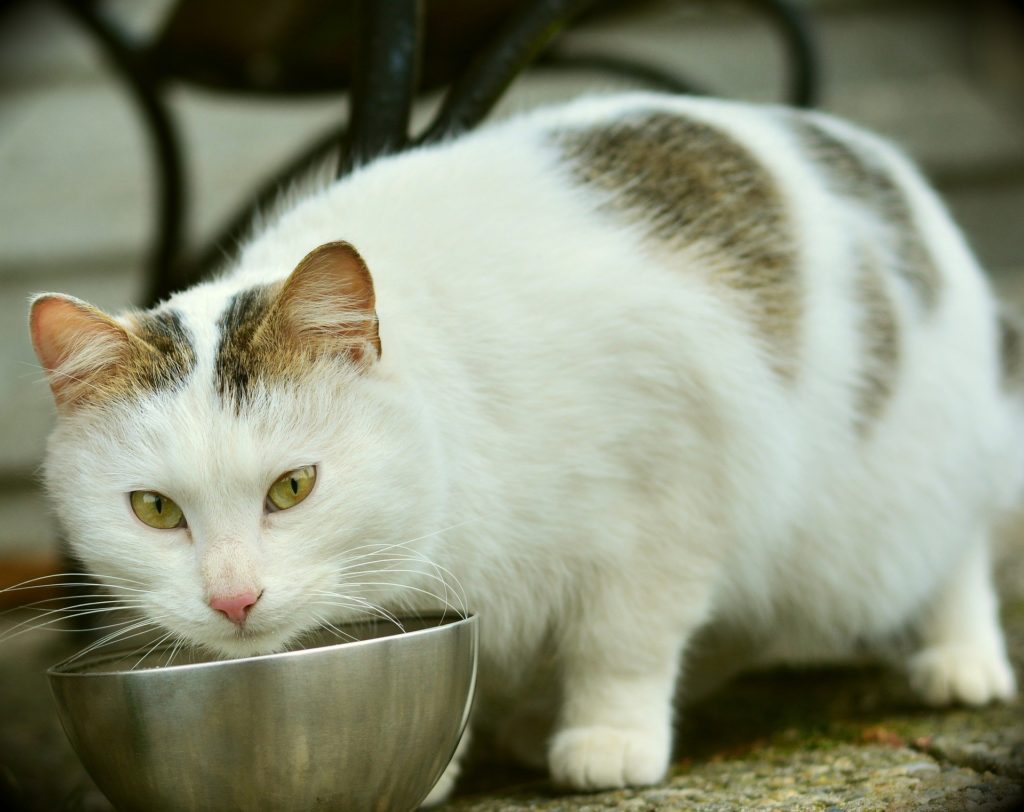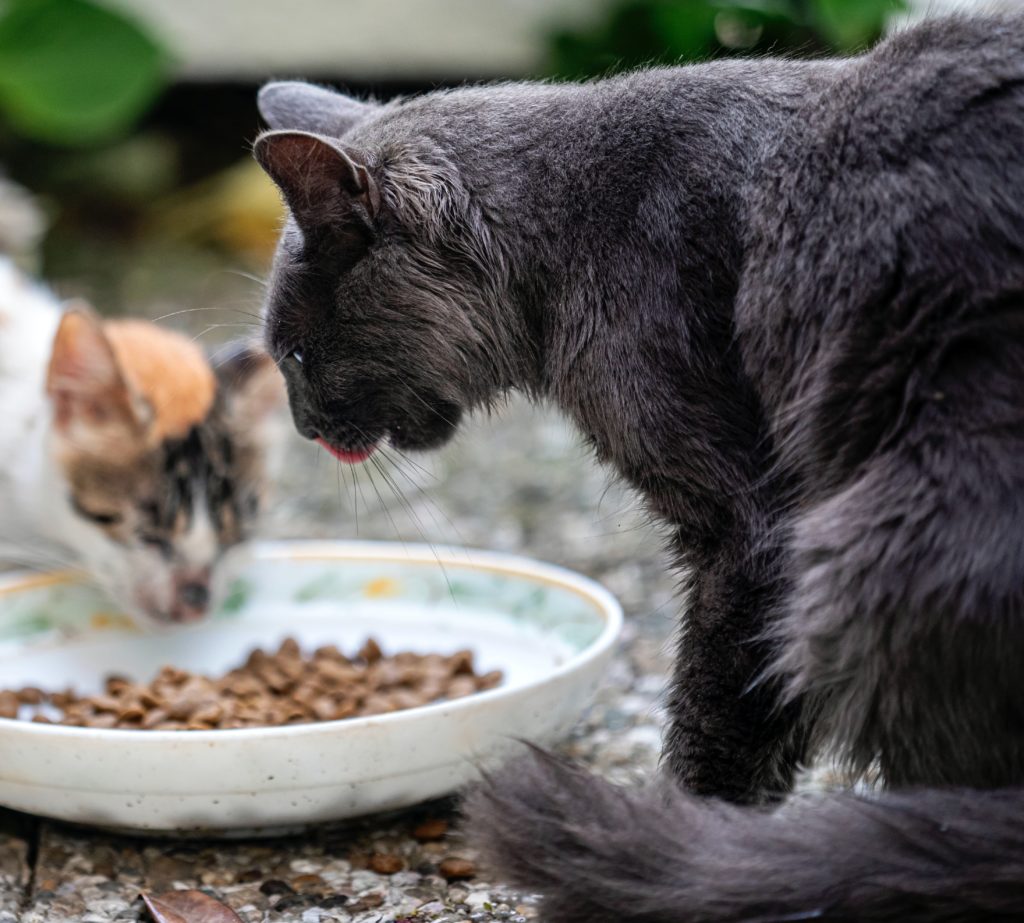Cats should be fed bread only in very small quantities, because bread contains neither nutrients nor vitamins. Especially in young and sick cats, feeding bread can be dangerous. The simpler the bread is kept, the less dangerous it is for your cat.
Every cat owner knows the situation, everyone sits together in the evening at supper and suddenly the cat begs and also wants to get a piece of the so delicious bread. Many cat owners do not know if the bread is poisonous or maybe even healthy for the cat.
Bread is generally not toxic to your cat, but should definitely be fed only in small amounts and only as a reward. The bread does not contain any nutrient-rich content that is harmful or beneficial to your cat.
If your cat is taking certain medications orally that he doesn’t like as much, you can try stuffing the medications into the bread and offering it to your cat. While it is better to include the medication in the regular food, cats are very quick to notice what does not belong in their food bowl and often will not touch the medication.
Is bread dangerous for my cat?
Only raw dough and bread that has been processed with garlic, raisins, onions or other spices should not be fed to your cat. Otherwise, feeding bread in small amounts is not dangerous to your cat unless he is a very young or sick cat. In these cases, your cat should not be given bread to eat.
Normal bread is not toxic to your cat in certain amounts. To make sure your cat does not have an allergy to the bread, you could check with your veterinarian.

Bread as a reward should not be fed to young cats or to cats that have diabetes or other diseases.
Likewise, it is important that you never feed raw bread, that is, the raw dough to your cat. This is very dangerous for your cat, because the dough made of yeast can produce a gas formation in the digestive system, which can lead to a bloated stomach. This usually ends fatally for your cat.
Certain breads filled with lots of spices, onions, garlic or raisins should definitely not be fed to your cat.
The rule is that the simpler the bread, the less dangerous it is for your cat.
If you want to know if it is harmful if your cat only wants to eat wet food, you can find out this and much more in our great article Cat only wants wet food, is it harmful?
How much bread can my cat eat?
Bread should only be fed to cats as cube pieces in the smallest way possible, as they have no nutrients or vitamins.
Bread should not be used as a solid food for your cat, as it has no nutrients or other vitamins. Bread should only be fed to your cat in exceptional cases, for example as a reward. Make sure that you do not give a whole slice of bread to your cat, but only small cubes of bread.
Young kittens or cats suffering from diabetes should not be fed bread at all.
What should a cat definitely not eat?
Besides tuna and leeks like garlic and onions, cats should not be given chocolate or raw pork to eat. Also milk and stone fruits like peaches or plums are very harmful for your cat. But also uncooked potatoes or avocados do not belong in your cat’s food bowl.
Cats should not be given certain foods to eat, because they can cause health damage to your velvet paws.
This includes tuna, for example. Cats love any kind of fish, but you should be especially careful with tuna because it contains a large amount of methylmercury, which can be harmful to your cat’s health.
Onions, garlic and other leeks should never be fed to your cat. It does not matter if the plants are raw, dried or cooked. Eating leeks can destroy your cat’s red blood cells.
Similarly, raw pork is not suitable for feeding to your cat. The danger is that your cat may become infected with the Aujeszky virus, which is often fatal to your cat.
Also stone fruits like apricots, plums or peaches should not be given to your cat to eat. There are toxins in stone fruit that can develop into prussic acid. This leads to poisoning in your cat, which can also be fatal.
What we humans should not eat, besides our cats, are raw potatoes. In the skin of the potato is the toxin solanine, which is also very toxic for us humans. Only by boiling does the toxin disappear from the skin.
It is often said that cats drink a lot of milk. However, milk is very unhealthy for cats and should not be given to them to drink. Adult cats in particular have major health problems should they consume milk. Young cats, on the other hand, can still produce the enzyme lactase, which means they can still digest milk well. This is because they still get milk from their mother when they are young.
What should not be eaten by cats is chocolate and cocoa. These are absolutely harmful for your cats and can lead very quickly to poisoning.

Especially in a household with children, care must be taken that the children do not offer the cat delicious chocolate to eat.
Down below we have summarized our most popular posts for you in a great overview:
- Why do cats groom themselves after eating?
- Cat does not like treats
- How do cats cool off in the summer?
- How to keep ants out of the cat food
- Cat only wants to eat
- Do cats like it warm or cold?
- Is there food envy in cats
- How do cats cool off in the summer?
- How long does open wet cat food keep?
- Strange cat comes again and again
Summary – Are cats allowed to eat bread?
Feeding bread to cats is not dangerous for your velvet paws. However, bread should only be fed to cats in very small portions and only in exceptional cases, as it does not contain any nutrients or vitamins.
Under no circumstances should raw dough be given to your cats to eat. This can be very dangerous, as the yeast in the dough can cause your cat to bloat or your cat’s stomach to twist. Likewise, do not feed bread to young or sick cats. This should always be discussed with your veterinarian.
Besides tuna and stone fruits like peaches or plums, your cat should not be fed raw pork. Also milk and chocolate are absolutely harmful for your cat. But also uncooked potatoes, which are also toxic for us humans, and avocados are among the foods that your cat should not eat.

